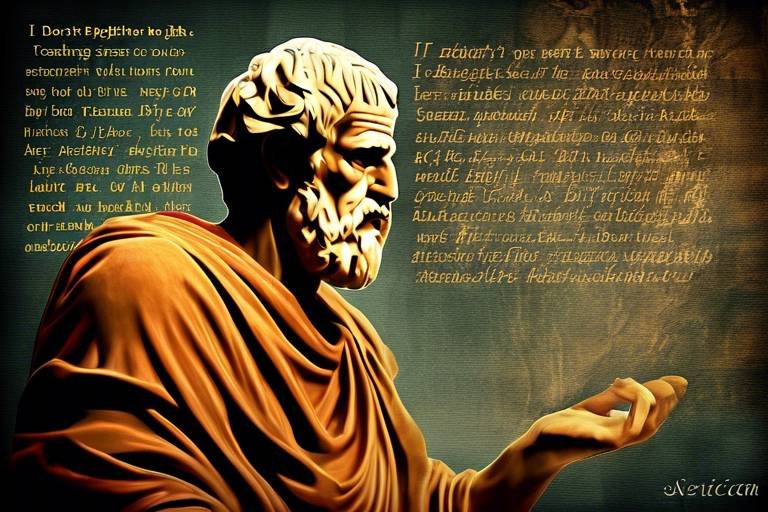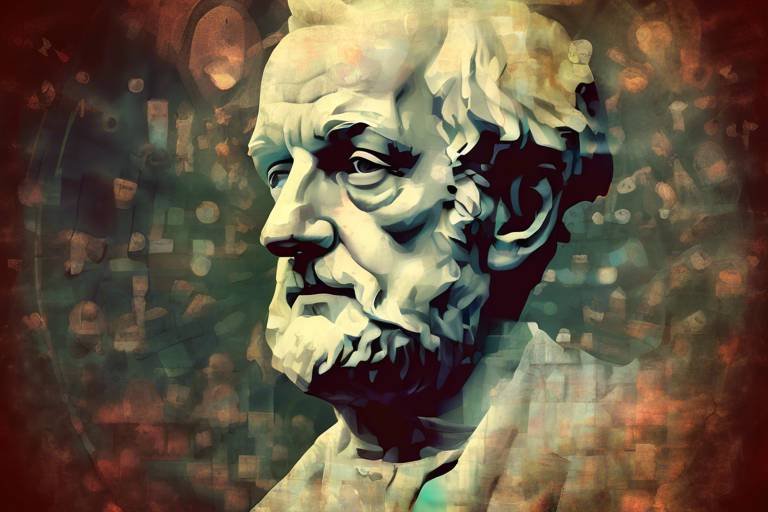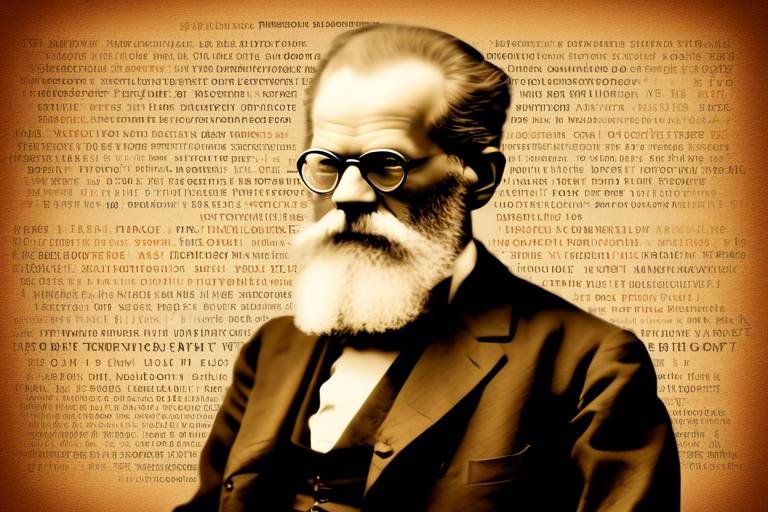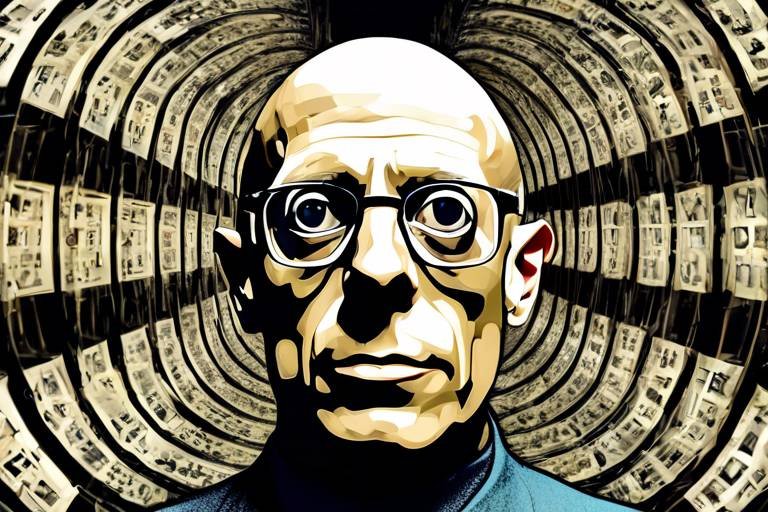What You Should Know about Soren Kierkegaard's Leap of Faith
Soren Kierkegaard, often hailed as the father of existentialism, introduced a profound concept known as the leap of faith. This idea is not just a philosophical notion but a call to embrace the uncertainties of life through personal belief and subjective truth. Imagine standing at the edge of a cliff, peering into the abyss below, and realizing that the only way forward is to leap into the unknown. This leap symbolizes the courage it takes to trust in something beyond mere rationality and objective reasoning. Kierkegaard argues that faith is not a blind acceptance of dogma but a deeply personal journey rife with challenges and doubts.
In a world that often prioritizes empirical evidence and logical reasoning, Kierkegaard's leap of faith serves as a reminder of the importance of personal conviction. It invites us to explore the depths of our beliefs and the motivations behind them. By examining our subjective experiences, we can uncover a richer understanding of our existence and our relationship with the divine. This article will delve into the nuances of Kierkegaard's philosophy, illustrating how his ideas resonate in contemporary thought, particularly in our quest for meaning amidst life's uncertainties.
Kierkegaard's leap of faith is not merely an act of will but a transformative experience that challenges us to confront our doubts and fears. It compels us to ask ourselves: What do we truly believe? How do our beliefs shape our actions and our understanding of the world? By engaging with these questions, we embark on a journey that transcends the limitations of objective knowledge, allowing us to embrace the profound mysteries of faith and existence. As we navigate through this exploration, we will uncover the intricate layers of Kierkegaard's thought and its lasting impact on our lives today.

The Philosophy of Existentialism
Soren Kierkegaard is often hailed as a precursor to existentialism, a philosophical movement that dives deep into the intricacies of human existence. But what exactly does that mean? At its core, existentialism grapples with the essence of being, the weight of individual freedom, and the relentless quest for meaning in a world that sometimes feels indifferent or even chaotic. Kierkegaard's work is a treasure trove of insights that resonate with these themes, encouraging us to confront our own existence and the choices that define us.
One of the most striking aspects of Kierkegaard’s philosophy is his emphasis on the individual. He believed that each person is responsible for creating their own essence through choices and actions. This idea can be both liberating and daunting. Imagine standing at a crossroads where every path represents a different version of yourself. Kierkegaard challenges us to choose wisely, as those choices shape not only our identity but also our relationship with the world around us.
Moreover, Kierkegaard's existentialism highlights the importance of freedom. He argued that true freedom is not merely the absence of constraints but the ability to make authentic choices. This is where the concept of the "leap of faith" becomes essential. It’s about taking a bold step into the unknown, embracing uncertainty, and trusting in the process of life. This leap is not just a philosophical idea; it’s a call to action. It urges us to live fully, to engage with our passions, and to dare to believe in something greater than ourselves.
In a seemingly indifferent universe, Kierkegaard’s exploration of meaning becomes particularly poignant. He posits that while the universe may not provide inherent meaning, we have the power to create our own. This subjective approach to meaning allows for a deeply personal understanding of existence. Rather than adhering to universal truths dictated by society or religion, Kierkegaard encourages us to seek our own truths through personal experience. This subjective lens is crucial in navigating life's complexities and uncertainties.
To better understand Kierkegaard's existential themes, consider the following key elements:
- Individual Existence: The focus on personal experience and the uniqueness of each individual's life journey.
- Freedom and Choice: The belief that individuals must take responsibility for their choices, which shape their existence.
- Search for Meaning: The pursuit of meaning in a world that often seems devoid of it, emphasizing personal interpretation over objective truth.
In summary, Kierkegaard’s contributions to existentialism invite us to reflect on our own lives, urging us to embrace our freedom, confront our choices, and create meaning in a world that can often feel chaotic. His philosophy serves as a reminder that we are not just passive observers of life; we are active participants, capable of shaping our destinies through our beliefs and actions.

The Concept of Faith
Understanding Soren Kierkegaard's notion of faith is crucial to grasping his entire philosophical framework. For Kierkegaard, faith isn't just a passive acceptance of religious doctrines; it is an active, dynamic relationship with the divine. He argues that faith transcends mere objective knowledge, which can often be cold and detached. Instead, he emphasizes the importance of subjective belief, where personal commitment and inner conviction play pivotal roles. This distinction is vital because it showcases how faith can transform lives, offering a sense of purpose and direction in an otherwise chaotic world.
In Kierkegaard's view, faith is a leap—a bold jump into the unknown. Imagine standing at the edge of a cliff, looking down into a misty abyss. You're not sure what lies below, but you feel a pull, an urge to jump. This leap symbolizes the act of believing without the safety net of certainty. Kierkegaard suggests that this leap is necessary for genuine faith to flourish. It requires courage to embrace the unknown, to trust in something greater than oneself, and to accept that not everything can be rationally understood.
Moreover, Kierkegaard differentiates between two types of knowledge: objective and subjective. Objective knowledge is what can be empirically verified, like facts and figures. However, subjective knowledge is rooted in personal experience and belief. It's the kind of knowledge that resonates on a deeper level, often arising from emotional and existential struggles. Kierkegaard argues that faith is not about having all the answers; rather, it is about embracing uncertainty and finding meaning within it.
To illustrate this further, consider the following table that contrasts objective knowledge with subjective belief:
| Objective Knowledge | Subjective Belief |
|---|---|
| Based on empirical evidence | Rooted in personal experience |
| Universal and rational | Individual and emotional |
| Static and unchanging | Dynamic and evolving |
| Can be proven or disproven | Cannot be fully articulated or quantified |
This table highlights how Kierkegaard's concept of faith challenges the conventional understanding of knowledge. He invites us to explore the depths of our beliefs and to recognize that faith is often a deeply personal journey, marked by doubt and uncertainty. In fact, the interplay between faith and doubt is where many find their greatest insights. Kierkegaard believed that doubt is not the enemy of faith; rather, it can be a catalyst for deeper understanding and commitment.
In essence, Kierkegaard's leap of faith is about making a conscious choice to believe, despite the uncertainties that life throws our way. It’s about finding personal meaning and truth in a world that often feels indifferent or chaotic. By embracing this leap, individuals can cultivate a more profound connection with their beliefs, leading to a richer, more fulfilling existence.
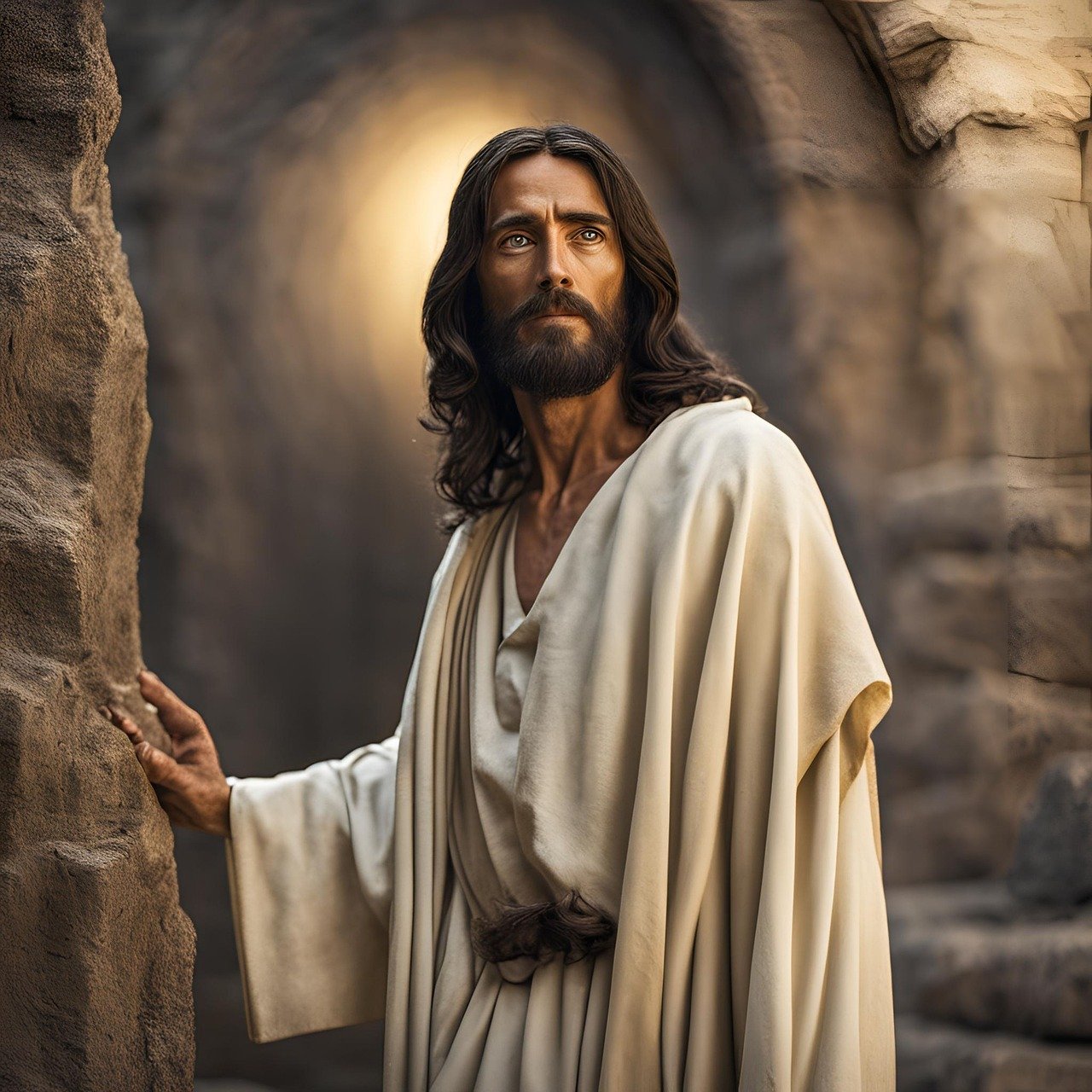
The Role of Doubt
Doubt is often viewed as a negative force, something to be avoided at all costs. However, in the philosophy of Soren Kierkegaard, doubt plays a pivotal role in the journey of faith. Imagine standing at the edge of a cliff, peering into the abyss below. That moment of hesitation, that flutter of uncertainty, is not just a barrier; it’s a crucial part of the leap itself. Kierkegaard suggests that grappling with doubt can lead to a deeper understanding of faith, making it a necessary companion on the path to belief.
In Kierkegaard's view, doubt is not the enemy of faith; rather, it is a catalyst for personal growth and spiritual awakening. When we encounter doubt, we are forced to confront our beliefs, question our motives, and ultimately refine our understanding of what it means to have faith. This process can be likened to a sculptor chiseling away at a block of marble. Each strike of the chisel, each moment of uncertainty, reveals the form hidden within, transforming raw stone into a masterpiece.
Moreover, Kierkegaard emphasizes that doubt can lead to a more authentic faith. When individuals wrestle with their uncertainties, they often arrive at a faith that is deeply personal and profoundly meaningful. This subjective experience of faith is what Kierkegaard believes is essential for true belief. It’s not enough to accept doctrines or teachings blindly; one must engage with their doubts to forge a genuine connection to the divine.
To illustrate this point, let's consider some key aspects of doubt in Kierkegaard's philosophy:
- Doubt as a Starting Point: Doubt prompts individuals to seek answers and explore their beliefs more deeply.
- Faith Through Struggle: The struggle with doubt can lead to a more resilient and robust faith.
- Personal Transformation: Engaging with doubt can result in personal growth and a clearer understanding of one's values and beliefs.
In essence, Kierkegaard encourages us to embrace our doubts rather than shy away from them. By acknowledging and confronting these uncertainties, we can embark on a more meaningful exploration of faith. This journey may not always be comfortable, but it is through this discomfort that we often find clarity and purpose. The leap of faith is not a blind jump into the unknown; it is a conscious decision that emerges from the depths of our doubts and struggles.

The Aesthetic Stage
The aesthetic stage, as described by Soren Kierkegaard, is a fascinating phase of human existence where individuals are primarily driven by the pursuit of pleasure and the avoidance of commitment. Imagine a world where every moment is a fleeting experience, a whirlwind of sensations and emotions that tantalize the senses but leave one feeling unanchored. In this stage, life is akin to a grand carnival, filled with vibrant colors and exhilarating rides, yet ultimately lacking in depth and meaning.
Individuals in the aesthetic stage often engage in a lifestyle characterized by hedonism, seeking out experiences that provide immediate gratification. They might indulge in art, music, and romance, but these pursuits are often superficial, lacking the substance that comes from deeper connections or commitments. Kierkegaard suggests that while this stage can be exhilarating, it is also inherently unstable. The constant chase for pleasure can lead to feelings of emptiness and despair when the thrill fades away.
To illustrate this concept further, consider the following characteristics of the aesthetic stage:
- Immediate Gratification: A focus on seeking pleasure in the moment without consideration for long-term consequences.
- Fear of Commitment: A reluctance to engage in relationships or responsibilities that might limit freedom.
- Superficial Experiences: An emphasis on transient joys that lack depth or lasting fulfillment.
While the aesthetic stage can be seen as a seductive way to live, Kierkegaard warns that it lacks true meaning. This stage sets the stage for a critical transformation, as the individual eventually confronts the limitations of a pleasure-driven existence. The realization that mere enjoyment does not equate to a fulfilling life often serves as a catalyst for moving into the ethical stage, where responsibility and deeper connections come into play.
In essence, the aesthetic stage is a crucial part of Kierkegaard's philosophical framework. It highlights the human tendency to seek pleasure while also foreshadowing the inevitable search for something more profound. The journey from the aesthetic to the ethical stage is not just a transition but a vital leap toward understanding one's self and one's place in the world. By recognizing the allure of the aesthetic stage, individuals can better appreciate the value of commitment and the pursuit of a more meaningful existence.

The Ethical Stage
In Soren Kierkegaard's framework, the ethical stage represents a pivotal transition in an individual's journey toward self-realization and deeper understanding of existence. Imagine standing at a crossroads, where one path leads to a life of fleeting pleasures and the other beckons toward a realm of responsibility and commitment. This stage is not merely a phase; it is a profound shift that requires individuals to take ownership of their choices and recognize the weight of their actions. Here, Kierkegaard emphasizes the importance of personal responsibility and the moral dilemmas that accompany it.
The ethical stage can be likened to a rite of passage. It involves a conscious decision to move beyond the superficial allure of the aesthetic stage, where pleasure reigns supreme. In this new phase, individuals begin to grapple with the concept of duty, not just to themselves but also to others and to society as a whole. It's a time of introspection, where questions arise: What do I stand for? What commitments am I willing to make? This self-examination is crucial, as it lays the groundwork for the eventual leap into faith.
As individuals navigate this stage, they encounter a series of challenges that test their resolve. The ethical stage is characterized by:
- Commitment: Choosing to uphold certain values and principles, even in the face of adversity.
- Self-Reflection: Taking the time to ponder one's motivations and the consequences of one's actions.
- Accountability: Accepting the repercussions of decisions made, whether positive or negative.
This stage is not without its struggles. The journey toward ethical living often brings about feelings of anxiety and uncertainty. Individuals may find themselves wrestling with the tension between personal desires and societal expectations. However, it is through this struggle that one can cultivate a sense of authenticity and integrity. Kierkegaard believed that true freedom comes not from the absence of constraints but from the ability to make choices in alignment with one's values.
Ultimately, the ethical stage serves as a vital preparation for the leap of faith. By confronting moral dilemmas and embracing the complexities of human existence, individuals develop the resilience needed to take that next step. They learn that faith is not a blind leap into the unknown, but rather a conscious choice made after careful consideration of one's beliefs and values. This stage is where the seeds of faith are sown, setting the stage for a deeper, more meaningful relationship with the divine.
- What is the ethical stage in Kierkegaard's philosophy?
The ethical stage is a phase where individuals take responsibility for their choices and grapple with moral dilemmas, moving beyond mere pleasure-seeking. - How does the ethical stage prepare one for the leap of faith?
It fosters a sense of commitment and accountability, allowing individuals to confront their beliefs and values before making the leap into faith. - What challenges do individuals face in the ethical stage?
They often struggle with anxiety, societal expectations, and the tension between personal desires and moral responsibilities.
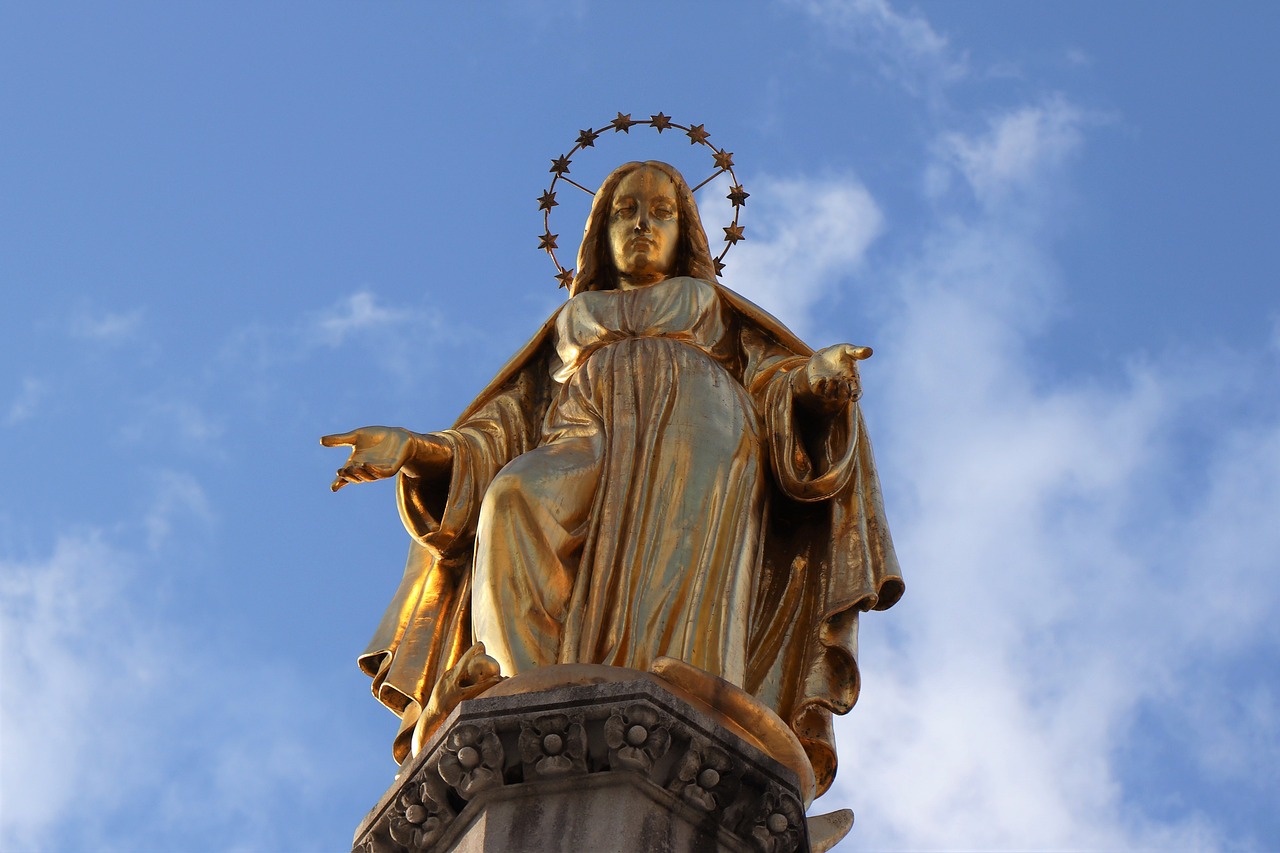
The Religious Stage
In Søren Kierkegaard's philosophy, the religious stage represents the pinnacle of human existence, where individuals confront the profound complexities of faith and personal relationship with the divine. It's like standing at the edge of a vast canyon, peering into the depths below, where the leap of faith becomes not just a choice but a necessity. Here, the individual must embrace the paradoxes that come with belief, acknowledging that faith often exists in tension with reason and understanding. Kierkegaard believed that this stage is where one truly grapples with the ultimate questions of existence: Who am I? What is my purpose? And how does my relationship with the divine shape my reality?
At this juncture, the individual must recognize that faith isn't merely a set of doctrines to be accepted; it's a deeply personal journey filled with uncertainties and doubts. Kierkegaard famously posited that true faith requires a leap—an act of trust that transcends rationality. This leap is not blind; instead, it is informed by a profound understanding of one's own limitations and the inherent contradictions of life. In this stage, individuals often find themselves wrestling with feelings of isolation, as they realize that their relationship with God is uniquely theirs. It’s a journey that can feel lonely, yet it is also incredibly liberating, as it allows one to define their own truth amidst a cacophony of societal expectations.
In the religious stage, Kierkegaard emphasizes the importance of subjectivity. This is where personal experience becomes paramount, shaping one's understanding of faith. Unlike the aesthetic or ethical stages, where external validation may play a role, the religious stage demands an inward reflection. Individuals may find themselves asking questions like:
- What does it mean to truly believe?
- How do I reconcile my doubts with my desire for faith?
- Can I find meaning in suffering and uncertainty?
These questions highlight the necessity of grappling with one's beliefs and the transformative power that comes from such introspection. It's in this wrestling that individuals often discover a deeper connection to the divine, one that is not just about adherence to rules but about a heartfelt relationship. Kierkegaard suggests that this relationship is characterized by a profound sense of love and commitment, where faith becomes a living, breathing part of who we are.
Moreover, Kierkegaard's religious stage is not about achieving a static state of belief; rather, it is an ongoing process of becoming. It involves a continual renewal of faith, where moments of doubt can lead to richer understandings and deeper connections with God. Just as a plant needs both sunlight and rain to grow, our faith requires both certainty and doubt to flourish. This dynamic interplay is what makes the religious stage so compelling and essential in Kierkegaard's thought.
In essence, the religious stage is where the individual fully embraces the complexities of existence and faith. It's a transformative journey that encourages personal growth, a deeper understanding of oneself, and a more profound relationship with the divine. Here, the leap of faith is not merely a one-time act but a continuous journey towards understanding, acceptance, and love.

The Importance of Subjectivity
When diving into the philosophical waters that Soren Kierkegaard navigated, one cannot overlook the monumental role of subjectivity. In a world that often clamors for objective truths and universal principles, Kierkegaard boldly champions the idea that our personal experiences and perspectives shape our understanding of existence. Imagine standing in front of a beautiful painting; while some may see a serene landscape, others might perceive turmoil. This difference in interpretation is a testament to the power of subjective experience. Kierkegaard argues that it is through our unique lenses that we grasp the essence of faith and truth. Can we really claim to know something if we haven’t felt it deeply ourselves?
Kierkegaard asserts that subjectivity is the foundation of genuine belief. He contends that faith cannot merely be a set of doctrines or beliefs handed down from authority; it must arise from personal conviction and lived experience. This notion challenges the conventional wisdom that emphasizes rationality and empirical evidence above all else. Instead, Kierkegaard invites us to embrace our inner selves, acknowledging that our feelings, thoughts, and experiences are not just valid but essential in our quest for meaning. In this light, faith transforms from a mere intellectual assent to a deeply personal journey.
To illustrate this further, consider the following points about the relationship between subjectivity and faith:
- Personal Interpretation: Each individual's interpretation of faith is influenced by their unique life experiences, cultural background, and emotional state.
- Authenticity: Genuine faith emerges not from external pressures but from an authentic connection to one's beliefs and values.
- Emotional Resonance: Subjective experiences evoke emotions that can lead to profound insights and transformative moments in one's spiritual journey.
In contrast, Kierkegaard critiques the reliance on objective rationality, which he believes can lead to a sterile understanding of faith. He posits that when we prioritize external validation over our internal compass, we risk losing the vibrancy and depth that faith can offer. Kierkegaard’s existential philosophy encourages us to explore our doubts and uncertainties, as these are not barriers but gateways to a richer understanding of our beliefs. By grappling with our subjective experiences, we not only deepen our faith but also cultivate resilience and authenticity in our lives.
Ultimately, Kierkegaard’s emphasis on subjectivity reminds us that each person’s journey is distinct. In a society that often seeks to homogenize beliefs, his philosophy stands as a clarion call for embracing our individual paths. The importance of subjectivity in understanding faith cannot be overstated; it is the very fabric that weaves the rich tapestry of human experience. So, the next time you find yourself questioning your beliefs, remember that your perspective is not just valid—it is vital.
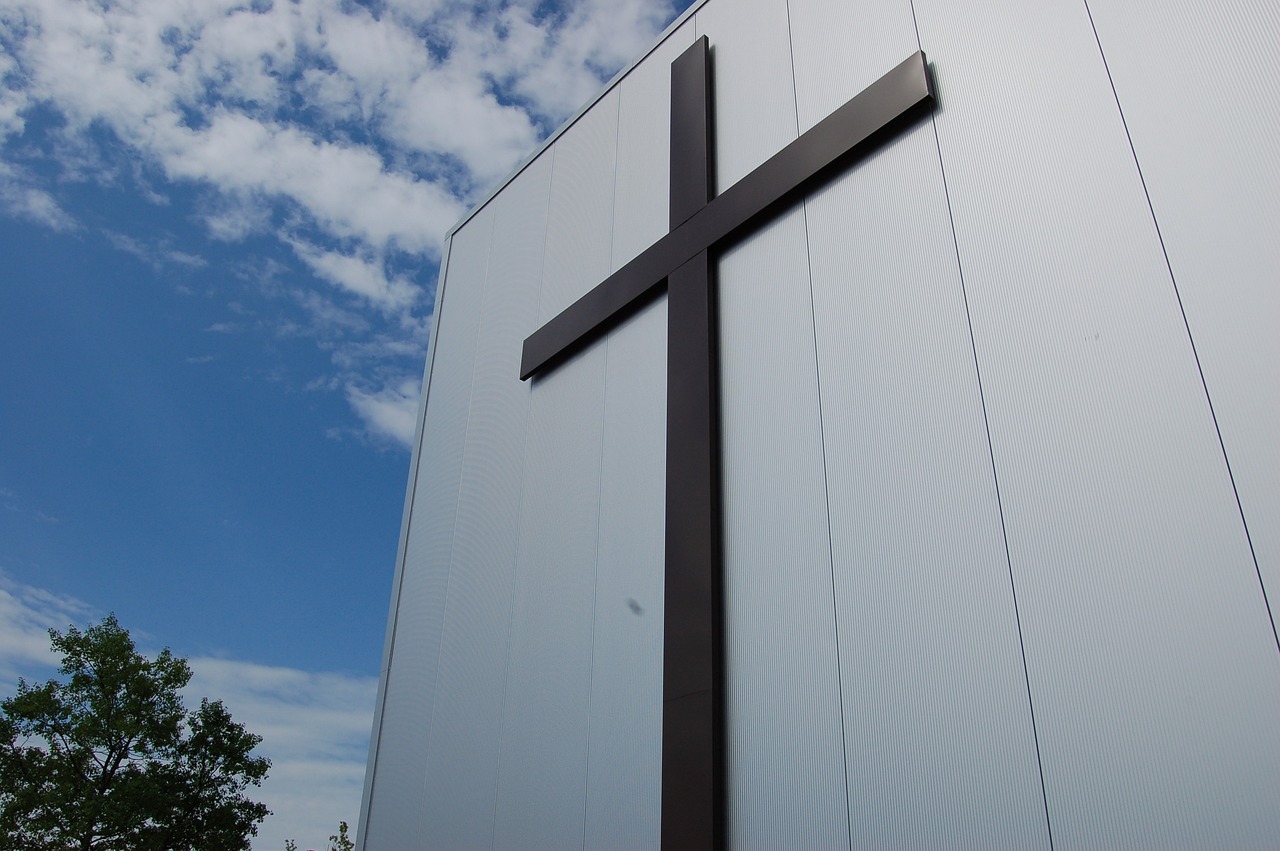
When we dive into the depths of Soren Kierkegaard's philosophy, one of the most compelling aspects is his emphasis on personal experience over what he calls "universal truth." It's almost like he’s holding a mirror to our souls, asking us to reflect on our unique journeys rather than merely accepting the doctrines handed down to us. Kierkegaard believed that genuine faith cannot be distilled into a set of dogmatic principles; rather, it emerges from the rich tapestry of our individual lives.
Imagine for a moment that you're standing at a crossroads, faced with two paths. One path is well-trodden, lined with signs and maps that promise a straightforward journey. The other is uncharted, filled with twists and turns, but it’s yours to explore. Kierkegaard would argue that the second path, filled with uncertainty and personal discovery, is where authentic faith resides. He posited that our experiences, filled with joy, suffering, and everything in between, are what shape our beliefs and understanding of the divine.
In Kierkegaard's view, universal truths—those grand, sweeping statements about existence or morality—often fail to capture the essence of what it means to be human. They can be comforting, sure, but they risk oversimplifying the complexities of life. Instead, he champions the idea that our subjective experiences are not just valid but essential for a true grasp of faith. This is where the beauty of his philosophy lies: it invites us to embrace our personal stories as the foundation of our beliefs.
To illustrate this further, let's consider a few key points:
- Subjective Truth: For Kierkegaard, truth is not a one-size-fits-all garment. It's tailored to fit the individual, shaped by their experiences and choices.
- Faith as a Journey: Faith isn't a destination but a journey that evolves as we navigate our personal landscapes.
- Personal Responsibility: With personal experiences comes the weight of responsibility. We must confront our doubts and uncertainties to forge our paths.
This perspective is revolutionary because it liberates us from the shackles of collective beliefs that may not resonate with our lived realities. It encourages us to ask questions like, "What does faith mean to me?" or "How have my experiences shaped my understanding of truth?" In doing so, we begin to see that our individual narratives are not just valid but vital to the broader conversation about existence and belief.
Ultimately, Kierkegaard's insistence on the primacy of personal experience invites us to embrace our uniqueness. It challenges us to step away from the noise of universal truths and instead listen to the whispers of our own hearts. After all, isn’t it in the quiet moments of introspection that we often discover the most profound insights about ourselves and our place in the universe?
- What is Kierkegaard's view on faith?
Kierkegaard believes that faith is a deeply personal journey that emerges from individual experiences rather than universal doctrines. - How does personal experience shape our beliefs?
Our unique experiences inform our understanding of truth and faith, making them essential for genuine belief. - Why does Kierkegaard emphasize subjectivity?
He argues that subjective experiences are crucial for understanding the complexities of existence and the divine.

When diving into the depths of Soren Kierkegaard's philosophy, one cannot ignore the critiques and misinterpretations that have emerged over time. Many scholars and readers often grapple with Kierkegaard's complex ideas, leading to a variety of interpretations that sometimes stray far from his original intent. For instance, some critics argue that his notion of the 'leap of faith' promotes a form of irrationality, suggesting that Kierkegaard advocates for a blind faith devoid of reason. However, this perspective overlooks his emphasis on the importance of personal experience and the struggle with doubt as integral parts of genuine belief.
Moreover, Kierkegaard's existential approach has been misinterpreted as nihilistic by some, who see his focus on individual experience as a rejection of universal truths. In reality, Kierkegaard was not dismissing the existence of objective truths but rather highlighting the significance of subjective truth—the idea that personal experiences and beliefs shape one’s understanding of existence. To him, faith is not a mere acceptance of dogma; it is an active engagement with one’s own doubts and beliefs. This engagement transforms faith into a living, dynamic force rather than a static adherence to doctrine.
Another common misinterpretation involves the stages of life that Kierkegaard outlines: the aesthetic, ethical, and religious stages. Some critics argue that these stages imply a linear progression, suggesting that one must completely abandon the aesthetic to embrace the ethical and subsequently the religious. However, Kierkegaard intended these stages to be more fluid, representing different ways individuals can engage with life at various points. Each stage offers unique challenges and insights, and one might oscillate between them throughout life.
To further clarify these critiques, let's examine some key points in a comparative format:
| Critique | Misinterpretation | Clarification |
|---|---|---|
| Blind Faith | Kierkegaard promotes irrational belief. | Faith involves personal struggle and doubt. |
| Nihilism | Focus on individual experience rejects universal truths. | Subjective truth is essential for understanding existence. |
| Linear Stages | One must abandon earlier stages to progress. | Stages are fluid; individuals may move between them. |
In conclusion, while Kierkegaard's philosophy invites criticism, it is essential to approach his work with a nuanced understanding. Misinterpretations often stem from a lack of engagement with the complexity of his thoughts. By recognizing the interplay between doubt, faith, and personal experience, we can appreciate Kierkegaard's profound insights into the human condition.
- What is the 'leap of faith' in Kierkegaard's philosophy?
The 'leap of faith' refers to the act of embracing belief in the face of uncertainty and doubt, emphasizing personal commitment over objective proof.
- How does Kierkegaard differentiate between objective and subjective truth?
Kierkegaard argues that while objective truths exist, subjective truths—those shaped by personal experiences—are crucial for genuine understanding and belief.
- What are the three stages of life according to Kierkegaard?
The three stages are the aesthetic, ethical, and religious stages, each representing different ways of engaging with life and existence.

In today's fast-paced world, where uncertainty looms large and questions about existence abound, Soren Kierkegaard's leap of faith resonates more than ever. His ideas challenge us to reconsider our beliefs and the nature of faith in a society that often prioritizes empirical evidence over personal conviction. Kierkegaard's philosophy invites individuals to embark on a personal journey—one that emphasizes the importance of subjective experience and personal truth rather than merely adhering to societal norms or objective rationality.
As we navigate through the complexities of modern life, Kierkegaard's concept of the leap of faith urges us to confront our doubts and uncertainties head-on. The leap is not merely a blind jump into the unknown; rather, it is a deliberate choice to embrace belief despite the absence of concrete proof. In a world filled with information overload, where skepticism often reigns, Kierkegaard's thoughts encourage us to cultivate a deeper understanding of our beliefs. He posits that faith is not a static state but a dynamic process that evolves through our experiences and reflections.
Moreover, Kierkegaard's emphasis on the significance of subjectivity plays a crucial role in contemporary discussions about spirituality and personal growth. In an era where many seek authenticity and meaning, his philosophy highlights that each individual's perspective is vital in shaping their understanding of truth. This subjectivity does not diminish the value of universal truths; instead, it enriches them by adding layers of personal significance. As we grapple with questions of identity, purpose, and morality, Kierkegaard's insights remind us that our unique experiences are the foundation upon which our beliefs are built.
In the realm of psychology and mental health, Kierkegaard's ideas also find relevance. The act of making a leap of faith can be likened to the therapeutic process, where individuals confront their fears and uncertainties to achieve personal growth. Just as Kierkegaard believed that doubt could lead to a deeper understanding of faith, modern therapy often emphasizes the importance of acknowledging and working through doubt and anxiety to foster resilience and self-discovery.
To further illustrate the relevance of Kierkegaard's leap of faith in today's context, consider the following table that summarizes key aspects of his philosophy and their modern implications:
| Kierkegaard's Concept | Modern Implication |
|---|---|
| Leap of Faith | Encourages embracing uncertainty and personal belief in a skeptical world. |
| Subjective Experience | Highlights the importance of personal narratives in understanding truth. |
| Doubt | Recognized as a pathway to deeper understanding and personal growth. |
| Stages of Life | Encourages reflection on personal development and ethical responsibility. |
In conclusion, Kierkegaard's leap of faith remains a powerful lens through which we can view our lives today. It challenges us to reflect on our beliefs, embrace our doubts, and seek personal meaning in a complex world. As we stand at the crossroads of faith and reason, Kierkegaard's insights remind us that the journey of belief is not just about finding answers; it's about the questions we dare to ask and the leaps we are willing to take.
- What does Kierkegaard mean by the "leap of faith"? Kierkegaard's "leap of faith" refers to the act of choosing to believe in something despite the lack of objective evidence. It's a personal commitment to faith that transcends rationality.
- How does Kierkegaard's philosophy relate to existentialism? Kierkegaard is often seen as a precursor to existentialism, focusing on individual existence, freedom, and the search for meaning in an indifferent universe.
- Why is doubt important in Kierkegaard's philosophy? Doubt is essential as it leads individuals to a deeper understanding of faith. It encourages a personal exploration of beliefs rather than accepting them at face value.
- How can Kierkegaard's ideas be applied to modern life? His ideas encourage individuals to reflect on their beliefs, embrace uncertainty, and seek personal meaning in their experiences, which is especially relevant in today's complex and often chaotic world.
Frequently Asked Questions
- What is Soren Kierkegaard's leap of faith?
The leap of faith is a central concept in Kierkegaard's philosophy, representing the act of embracing belief in the face of uncertainty and doubt. It signifies a personal commitment to faith that transcends rational understanding, urging individuals to trust in something greater than themselves.
- How does Kierkegaard differentiate between objective knowledge and subjective belief?
Kierkegaard argues that objective knowledge is based on empirical evidence and rational thought, while subjective belief is rooted in personal experience and conviction. He emphasizes that true faith arises from individual perspectives and cannot be fully captured by objective truths.
- What role does doubt play in Kierkegaard's philosophy?
Doubt is seen as a crucial element in the journey toward faith. Kierkegaard suggests that grappling with doubt can deepen one’s understanding of belief, allowing individuals to confront their uncertainties and ultimately make a more authentic leap of faith.
- Can you explain the three stages of life according to Kierkegaard?
Kierkegaard outlines three stages: the aesthetic, ethical, and religious. The aesthetic stage is characterized by a pursuit of pleasure and avoidance of commitment. The ethical stage involves making responsible choices, while the religious stage culminates in the leap of faith, where one embraces a personal relationship with the divine.
- Why is subjectivity important in Kierkegaard's thought?
Subjectivity is vital because it shapes an individual's understanding of truth and existence. Kierkegaard believes that personal experiences and feelings are essential for genuine faith, contrasting sharply with the idea of universal truths dictated by external doctrines.
- What are some common critiques of Kierkegaard's philosophy?
Kierkegaard's ideas often face critiques regarding their perceived irrationality or lack of systematic structure. Some misunderstand his emphasis on subjective experience as a rejection of objective truth. However, he argues that individual experiences are fundamental to understanding faith and existence.
- How are Kierkegaard's ideas relevant in today's world?
Kierkegaard's concepts, particularly the leap of faith, resonate in contemporary discussions about belief, spirituality, and personal growth. His insights into navigating life's uncertainties continue to inspire individuals seeking meaning and authenticity in their lives.









